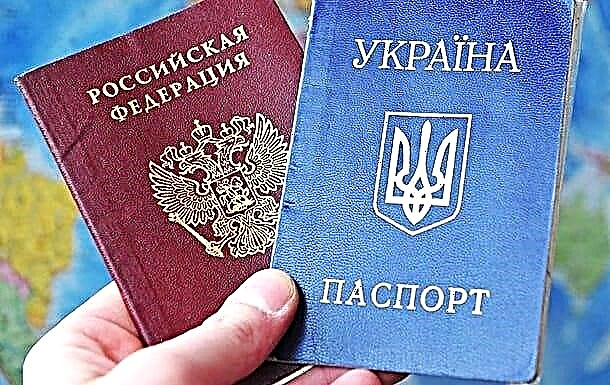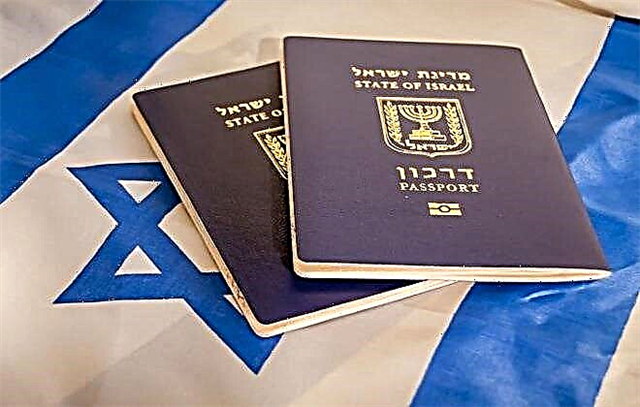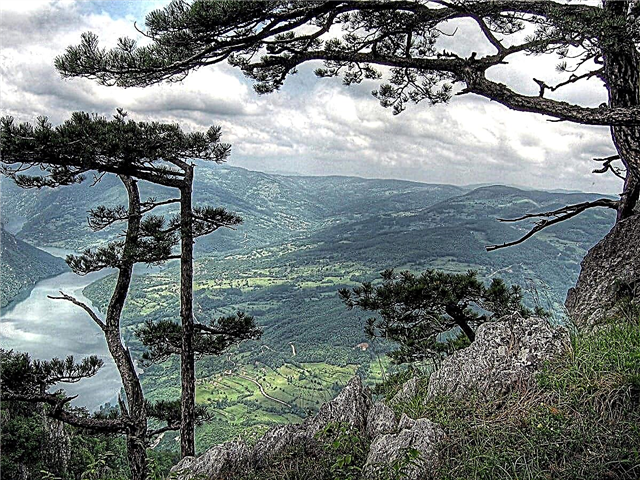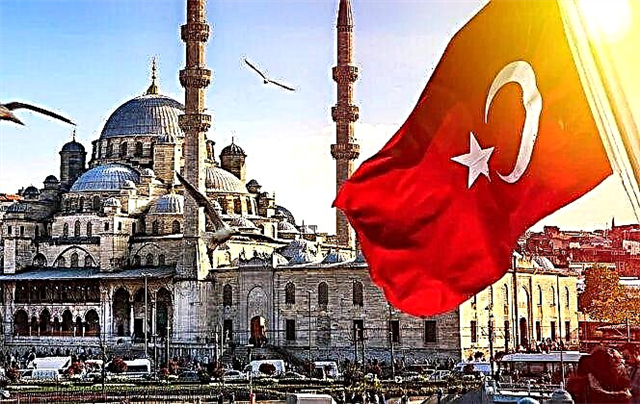For those who have not had time to enjoy Turkish hospitality within the framework of a visa-free stay, it will be useful to know that a longer stay will require a visa permit and a residence permit, which is issued if there is a documented basis. Today, immigration to Turkey attracts with the opportunity to live close to world-famous resorts and a relatively simple legalization procedure.

We will understand the terms: immigration, residence permit, permanent residence, citizenship
The concept of "immigration" means crossing the border of a foreign state for the purpose of long-term or temporary residence on the basis of any reason. The incentives to immigrate are:
- a higher standard of living in the target state;
- favorable economic conditions promising stability;
- the prospect of successful employment with good wages;
- the opportunity to receive quality education;
- military actions, the deteriorating environmental situation and other factors that make life in the country of their citizenship unsafe;
- desire to live in more favorable climatic conditions.
A residence permit gives the right to long-term residence abroad. In some cases, it is not enough to carry out labor activities. Sometimes it is required to issue a work permit. A residence permit gives its holder quite limited rights.
The status of a permanent resident (permanent residence) practically equates a foreigner in rights with citizens of the state. The only exception is the opportunity to participate in elections, vote, hold public office, and serve in the army.
After 5 years of living in permanent resident status, the right to apply for citizenship appears. This way of immigration is called "naturalization" in international practice.
What you need to know about Turkey
The Republic of Turkey is located between two parts of the world - Europe and Asia, has access to 4 seas, is famous for the benevolence of local residents and fast economic growth.
But do not forget that emigration to Turkey from Russia presupposes a radical change in the way of life and living environment. The immigrant will have to adapt to a completely different mentality, stay in a Muslim society, new culinary traditions. The difference in these aspects can be strongly felt not only in everyday life, but also in the moral burden.
Modernity, traditions, climate and demographic situation
The first thing that catches your eye upon arrival in the country is the religiosity of the Turks. Despite the fact that the geographical location of the state, European integration and the course to attract tourists and investors have long made Turkey a secular state, local residents are very sensitive to their religious beliefs.
There is a mosque in every district of any Turkish city. During namaz (daily prayer), many institutions are closed, and a place for exalting Allah and reading the holy verses from the Koran can be found even at the airport.
As for the rhythm of life, everything is done here very slowly, despite the fact that the Turks themselves are workaholics. The working day for many lasts from 8 am to 10 pm, but from the outside it seems that this nation never gets tired.
The traditions here are largely due to Islam. You need to pay attention to the following features:
- early age of marriage;
- respectful attitude towards the older generation, boundless love for children;
- hospitality;
- special attitude to food (it is not customary to have a snack on the go);
- careful observance of religious customs and holidays.
In the modern world, Turkey is far from the last place in the political arena. The government's course is aimed at partnership with the countries of Western Europe, as evidenced by membership in NATO, the WTO and the EU, although so far only in the role of an associate member.
The number of residents of the state today exceeds 83.7 million people. According to the National Institute of Statistics, about 70% of this number are Turks, about 9-14% are Kurds (an ethnic group living mainly in the eastern regions of the country). Representatives of other nationalities in terms of their number were distributed as follows:
| National minority | Number of inhabitants |
|---|---|
| arabs | 870 000–2 000 000 |
| Circassians | about 3,000,000 people |
| Greeks | approximately 1,500,000 |
| zaz | 500 000–2 000 000 |
| Albanians | almost 1,000,000 inhabitants |
| Chveneburs, Armenians | no more than 1,000,000 |
A significant minority is represented by Turkmens, Azerbaijanis, Chechens, Tatars, Gypsies, Ingush and others. As for the Russians, there are about 79 million of them in Turkey (data for 2021). The number of our compatriots is growing mainly due to those who have married Turks, migrant workers, retirees and investors who have invested in the local economy and bought real estate in the country.
Economy level
 The economy in Turkey, according to the International Monetary Fund, is among the developing ones. Despite the great desire to become a full-fledged member of the European Union, the state is developing at its own pace and within the framework of prevailing stereotypes, including in business, which sometimes significantly complicates the entry of foreign investors into the Turkish market.
The economy in Turkey, according to the International Monetary Fund, is among the developing ones. Despite the great desire to become a full-fledged member of the European Union, the state is developing at its own pace and within the framework of prevailing stereotypes, including in business, which sometimes significantly complicates the entry of foreign investors into the Turkish market.
In 2021, the country was plunged into a currency crisis due to a sharp drop in the Turkish lira against the dollar: the national currency lost almost 40% of its value. Against this background, the rating agency Moody’s downgraded the ratings of 2 large financial companies and 18 Turkish banks.
The country's GDP at the end of last year was $ 909.8 billion (18th in the world).
The Turkish economy is based on:
| Industry | Contribution to the economy as a percentage |
|---|---|
| Service industry including tourism, communications and transport | 58 |
| Industry | 33 |
| Agriculture | 9 |
In the manufacturing sector, the largest profit comes from the textile, leather, food and pharmaceutical industries. Turkey is an exporter of cars, food, tobacco, clothing and carpets, paints and varnishes. The main partners of the country are Russia, Germany, Italy, China.
Living standards in the Republic of Turkey
Life in Turkey from the standpoint of social conditions (medicine, education, the level of prices for food and housing, salaries and pensions) can be called comfortable and inexpensive. Briefly about the main aspects:
- Medicine. The authorities pay special attention to the development of the medical industry, which contributes to the influx of foreigners who want to undergo treatment at more moderate prices than in Europe. A medical insurance policy covers citizens' use of the services of government clinics. There are no district doctors in Turkey: if the patient can, he himself comes to a specialized specialist, if not, he calls an ambulance. The pharmaceutical business is very well developed. The quality of drugs is monitored by a special commission under the Ministry of Health, which guarantees the absence of counterfeits and low-quality drugs on the market.
- Education. The compulsory stage of education begins at school (from 6 years old) and is divided into 2 levels: primary (up to 14 years old) and secondary (14-18 years old). Education in public schools is free even for foreign citizens; in private schools the price ranges from 4 to 9 thousand dollars per year. There are 117 higher education institutions in Turkey. In the state, it is possible to study free of charge, in private - only paid.
- Work and social protection. The median income of a working resident of the country is $ 1,000. The size of personal income tax is progressive - from 15 to 35%. The retirement age is 58 for women and 60 for men.Pensioners receive the allowance in the amount of about 64% of their earnings.
- The cost of the grocery basket. Prices may differ depending on the region, as well as from the point of sale - market, store, supermarket. The approximate price tag in 2021 looks like this (in rubles):
- sugar - from 70;
- bread - from 10 rubles apiece;
- eggs - from 40 to 1 dozen;
- milk - from 70;
- butter - from 170;
- chicken fillet - from 150;
- tomatoes - from 30;
- cabbage - 25-30;
- apples - from 50;
- cucumbers - from 60. On average, $ 100-200 is needed for food for 1 person.
- Housing. The rental price of real estate depends on the proximity to the sea. In resorts, the monthly payment can range from $ 250 to $ 500, but in remote regions you can rent a 1-room apartment from $ 150. Those who believe that it is better to buy housing should expect at least $ 300 per square meter, not forgetting about utility costs:
- electricity - from $ 19 per month;
- water - from $ 8 per month per person;
- gas cylinder - from $ 25 (enough for 4-5 months).
- Expenses for clothes will not require a large budget. The light industry is well developed in the country, and therefore it is quite inexpensive to choose a wardrobe here with a large assortment.
- In terms of travel costs, a single city trip can cost about $ 0.50. But not all Turks prefer to use their own car because of the high cost of its maintenance. A liter of gasoline in the republic costs $ 1.25.
Moving methods
Immigration to Turkey from Kazakhstan, Russia, Ukraine and other CIS countries is a multi-stage process. It begins with determining the basis on which legalization will be carried out and which will give the right to long-term residence in Turkish territory.
The first stage of the move will be to obtain a long-term visa of category D. It will be needed even for those who live in countries that support visa-free travel with Turkey for short-term trips.
Residence
 Today, Turkish migration legislation provides for 6 types of residence permits:
Today, Turkish migration legislation provides for 6 types of residence permits:
- short-lived;
- university;
- family;
- long;
- on humanitarian grounds;
- for people who have become victims of human trafficking.
A short-term residence permit in Turkey is issued for 12 months to persons who can prove financial independence and belong to the following categories:
- property owners;
- entrepreneurs who want to start a business;
- persons who have come to practice or internship;
- researchers;
- students who arrived as part of exchange programs;
- clinic patients;
- students of Turkish language courses;
- foreigners arriving for educational purposes.
To qualify for a family residence permit, you must live in the country for at least a year and have an income that exceeds the minimum wage threshold. Applicants will need to prove that they have housing, health insurance, and registration at their place of residence.
A university residence permit gives the right to reside in the country only to the person to whom it was issued. A document is issued for the entire period of study. But a residence permit for property owners and relatives undergoing reunification is issued for 2 years.
A permanent residence permit is issued to those who have lived in the country for at least 8 years. Requirements for such candidates:
- availability of work, insurance policy and financial security;
- the absence of requests for financial assistance from the state over the past three years;
- clean biography and no criminal record.
Starting from 2021, a short-term residence permit in Turkey does not lose legitimacy if its owner has been absent from the republic for more than 120 days.
Who can get permanent residence
You can get permanent residence only after 5 years of residence in the state on the basis of a residence permit and meeting certain requirements:
- Starting a business - the candidate needs to show that his company, registered in the country, brings profit and benefit to the population. There are no specific requirements for the line of business. Those who have bought out a share or an enterprise as a whole can also apply for permanent residence in Turkey.
- Family reunification - this type of permanent residence is provided for the spouses of migrants and their children (you can go to the next stage after 3 years). Russians and Ukrainians are the most frequent candidates for this type of document.
- Work: Permanent residence is issued to labor migrants on the basis of a work permit, which for them is simultaneously a residence permit.
- Buying real estate - the legislation does not limit the amount by which the purchase must be made. It can be either a cheap apartment or an expensive villa. The main thing is that the candidate has an “ikamet” (residence permit) with which he has lived in the country for at least 5 years and has not lost his property rights.
The permanent residence document already entitles its owners to get a job.
Legalization stages
Step by step, you can imagine the process of moving to live in Istanbul or any other Turkish city as follows:
- After entering Turkish territory on the basis of a national visa, a foreign citizen must apply for a residence permit.
- Having issued a residence permit, you must carefully monitor the period of its validity and apply for its renewal in time. This must be done no later than two months before the final date specified in the document.
- Having lived in the country for at least 5 years, the applicant can apply for permanent residence. For privileged categories, this period may be shorter. For example, upon marriage, a residence permit is issued for 2 years, and after 3 years you can obtain citizenship.
- The final stage is citizenship. It is assigned to residents who have lived in the country for 10 years, who speak Turkish, who have no problems with the law and who have a permanent income and place of residence.
Turkish law does not oblige candidates to renounce their previous citizenship and allows multiple citizenships.
What documents are needed
 The next thing you need to go to live in Turkey is a complete package of documents that meet the requirements of the state. To obtain a residence permit / permanent residence, you will need approximately the same set, including:
The next thing you need to go to live in Turkey is a complete package of documents that meet the requirements of the state. To obtain a residence permit / permanent residence, you will need approximately the same set, including:
- Statement.
- A copy and original of the foreign passport.
- A copy of the national passport.
- 2 photos.
- Account statement on the availability of funds.
- Certificate of no criminal record.
- Receipt of payment of the duty.
- Document confirming the basis for migration:
- for family members - certificates of marriage and birth of children;
- for students - an invitation from the university;
- for employees - a work permit and an invitation from the employing company;
- for investors - certificates of conformity issued by certain departments (depending on the method of investment);
- for real estate owners - a purchase and sale agreement.
- Confirmation of housing availability.
When applying for permanent residence, you must attach to the listed securities:
- Current residence permit.
- Certificate of passing the Turkish language proficiency test.
- Insurance policy.
All documents drawn up in a foreign language must be translated into Turkish in advance and notarized.
How much does legalization cost and waiting times
An application for a residence permit is usually processed in the interval from 3 days to 3 months. This period depends on the influx of applications to the authorized department.
The renewal request is considered within 1-2 months. If the department has any questions, the candidate will be invited for an interview.
In case of a positive outcome of the case, a residence permit in the format of a plastic card is sent by mail to the registration address.
The fee for a temporary residence permit for a period of 1 year is $ 80, for a period of 2 years - $ 125. The cost of the document blank is $ 20, another $ 13 will be needed for the registration card, which is entered on the applicant.
The fee for permanent residence and citizenship is $ 125. While waiting for a decision to be made, it is very important not to change the basis for migration.
Why can they refuse
 Although the Turkish authorities are very loyal to applicants for a residence permit and permanent residence, there are still several reasons why they may be refused:
Although the Turkish authorities are very loyal to applicants for a residence permit and permanent residence, there are still several reasons why they may be refused:
- the presence of offenses and misunderstandings with the law;
- failure to meet one of the requirements, for example, the candidate does not have housing or his income does not reach the established minimum;
- expired residence permit;
- stay in the country does not correspond to the basis for immigration;
- the application contains unreliable claims;
- the documents have not been translated into Turkish;
- the data indicated in the application is not documented;
- the certificates presented have lost their relevance.
The speed of consideration of the application and the result depend on the correct preparation of all documents.
A few tips for adaptation
To make the process of integration into the local society faster and more painless, you need to know its main features:
- it is best to start learning Turkish in advance, while still at home. This will help smooth out the rough edges in dealing with officials;
- carefully study the rules of conduct and life in a Muslim country;
- try to respect the faith of the locals;
- revise your wardrobe. Although today Turks are more loyal to the European style of dress, there are still areas in every city where they adhere to the strict instructions of the Koran in this matter;
- if you plan to get a job, start studying the labor market in the village where you plan to settle in advance.
Outcomes
It is possible to understand how correct the decision to move is only after the pros and cons of immigration to Turkey have been compared:
| Advantages | disadvantages |
|---|---|
| mild climate on the Mediterranean coast; | a low standard of living in comparison with Europe; |
| access to 4 seas; | Hot Summer; |
| low cost of services and goods; | high competition in the labor market; |
| affordable real estate; | another religion and the presence of rules that are alien to the Christian world; |
| the possibility of legalization for the purchase of housing; | Difficult language; |
| clean ecology; | the slowness of the Turks, lack of punctuality and accuracy; |
| high quality pharmaceutical products; | low level of remuneration; |
| low crime rates; | the difference in culinary preferences; |
| fast growing economy; | red tape at different levels. |
| friendly attitude towards foreigners. |











